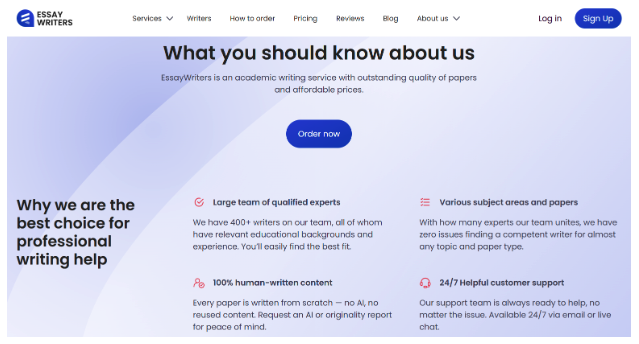Resume Cliches and Buzzwords to Avoid This Year
If you're a job seeker preparing to update or create your resume this year, there's a lot that needs to be taken into consideration. Not only do you need to ensure your skills and experience are accurately showcased, but also avoid any use of overused industry clichés and corporate buzzwords. Being vivid with how you present yourself on paper can make all the difference when it comes time for an employer to read through dozens of resumes in one sitting. Try ditching tired phrases like “team player” as well as industry jargon – now more than ever employers want authenticity rather than just hearing what they've heard before! Let’s explore why now is a great time to save those cliches and why avoiding them could help improve your chances of landing your dream role this year. In this article, we’ll explore:
The Problem of Using Cliches and Buzzwords on Resumes and Why They Are Unappealing
Common Cliches and Buzzwords That Have Become Overused and Should Be Avoided
How to Stand Out with Action Words and Specific Metric-Based Language
Examples of New, Engaging Phrases That Will Make Your Resume Shine
The Growing Use of Cliches and Buzzwords on Resumes
Job seekers frequently use cliches and buzzwords on their resumes in an effort to make a lasting first impression on potential recruiters and hiring managers. Unfortunately, this often has the opposite effect as instead of coming off as an original thinker, many applicants appear unoriginal and come across as using clichés to sound more impressive than they actually are. Moreover, hiring managers have become familiar with these sorts of expressions, leading them to be immediately accustomed by an applicant tracking system. As such, job seekers should remember that impressing potential employers requires demonstrating one's words rather than simply writing them down in an effort to seem more appealing.
Job seeking can be a frustrating process, and one misstep can limit your chances of finding the perfect job. One avoidable mistake is not paying enough attention when describing your skills and experience. Employers are on the lookout for certain words and phrases that show engagement, creativity, and potential for growth. Applicants should modify their resumes, cover letters, and other applications to show effective communication skills. Many job seekers fall into the trap of telling but showing something entirely different. We can tell an employer we’re organized and logical in our resume, but if it isn’t organized and written logically, we’ve fallen into the buzzword trap - sounding more impressive than we actually are. The evidence in front of them shows a different story than we are telling with our buzzwords. Many jobs require us to be effective written communicators, but adding the cliche “effective communicator” to our resume doesn’t make it so - especially if our resume lacks a concise narrative and is confusing.
To create a more appealing job search experience, be sure you craft your words carefully so that employers can recognize the unique value you bring to the table. Don’t fall into the trap of cliches and buzzwords.
What is a Resume Cliche or Buzzword
A resume cliche and buzzword is any word or group of words that are overused, lack substance, are vague, or are so industry specific that other readers cannot understand it.
What to Avoid - Common Cliches and Buzzwords That Have Become Overused
Below, we’ve compiled a list of the most common resume cliches and buzzwords seen in resumes and also how to avoid them. If you’ve listed any of these words or phrases in your resume, use this section to find alternative ways to communicate better.
Accustomed to fast-paced environments
Fast-paced environment is a vague term. It’s subjective to the reader. Instead of saying “fast-paced environment,” write something like processing 1,000 invoices per week. By using specific, metric-based language, you remove doubt and provide clarity for the hiring manager and recruiter.
Analytical
This word is overused and lacks substance. Instead of telling the reader we are analytical, we could tell a story about how we used our analytic skills to make an impact. For example, we might write, “Led an analysis of 4 product lines, identifying 2 unprofitable products and collaborating with sales executives to recommend pricing changes that improved margins by 22%.”
Confident
Using the word confident in your resume doesn’t give the employer any substance to substantiate your claim. It is also vague and subjective. Instead of writing “confident,” write something like, “Turned around an underperforming department within 30 days by quickly obtaining key information, organizing an executive panel, and making critical decisions as quickly as possible to avoid a reduction in EBITDA prior to the sale of the company.” Statements like that show confidence and they are vivid. The employer can see it in their mind, almost as if they were there.
Creative
If you’re trying to create a standout resume and want to showcase your creative side, using words such as innovative, trailblazer, or creative doesn’t do much to demonstrate your creativity. Instead, describe the successes or results you’ve obtained as a result of your creativity. Writing, “Designed and pitched new brand style guide, obtaining executive sponsorship and creating new brand consistency within first 30 days of launch,” offers evidence of your creativity. By obtaining executive sponsorship, this statement shows that you were indeed creative enough to get the leadership team to buy in.
Dependable
Dependability is something every company wishes to see in their employees; however, the term is incredibly overused. Instead of blanket statements such as “dependable customer service representative,” try something like, “Consistently responding to over 60 customer inquiries per day in less than 5 minutes while maintaining a 98% CSAT.” A statement like this shows dependability and consistent results - exactly what the hiring manager reading your resume is looking for.
Detail-oriented
Out of one hundred resumes, eighty-one of them had this resume cliche within them. Everyone says they are detail-oriented. If you want recruiters and hiring managers to believe that you’re detail-oriented, show them with your words. Instead of writing this resume buzzword, you could write, “Identified 2 duplicate invoices through careful 3-way matching of 500 invoices, saving the company $35,000.” If you were applying for an accounts payable job and you wrote that in your resume, you’d have the attention of quite a few accounting managers.
Energetic
Some people bring a lot of energy to their work and it’s easy to write this buzzword in a resume. While it’s not as commonly overused as the others, there are better ways to show this trait. Instead of using this word, you could write, “Pulled together a cross-functional team, incorporating 8 different departments, to work on 3 projects, completing all three, two weeks ahead of schedule and under budget.”
Exceeded expectations
This is a common resume cliche seen in many resumes. To the untrained reader, it sounds great. But to someone who sees hundreds of resumes, it comes across as this individual lacks accomplishments and is trying to hide the fact that they don’t often meet expectations. After all, if you exceeded expectations, wouldn’t you tell us about those expectations you exceeded? And that is precisely what you must do instead. Write something like, “Exceeded sales quota by 114%, driving a total of $2.1M in annual sales.” Writing like this tells the reader with clarity how much you exceeded your quota and how rigorous that quota was. It removes any questions about your abilities.
Excellent communication skills
Your resume is a communication tool that will shine a light on how well you can communicate in writing. Beyond the words you choose, your layout and ability to convey a logical pattern of thought will factor into whether the employer believes you have excellent communication skills. There is nowhere to hide with a resume and simply writing “excellent communication skills,” will not make anyone believe you indeed possess them. Instead of writing this overused phrase, try writing something such as, “Made 40 calls daily to potential customers, encouraging 65% of them to lock in their rate same-day.” With those results, there’s no doubt you possess superior communication ability.
Fast learner
No one says they are a slow learner. Instead of writing this overused cliche, try writing, “Ramped up within 2 weeks, making over 5 sales in week 3 by carefully shadowing high-performers and proactively identifying trends among top salespeople.” A sentence like this gives clarity to the recruiters and hiring manager about how quickly you can ramp up and it shows that you own the ramp-up process and won’t simply wait around for someone to tell you what to do.
Flexible
Depending on your job targets, this trait can be very appealing to employers - especially start-ups who are still “figuring it all out.” But writing “flexible” on your resume does little to convey that you are, indeed, flexible. It’s also dramatically overused. Instead, you might write, “Took on 3 new roles at a Fintech startup, quickly pivoting and assessing new business needs as the financial market shifted during a global pandemic.” Language like that will show just how flexible you really are.
Hard worker
Everyone states they are a hard worker or that they have a superior work ethic. It’s one of the most overused resume cliches out there. Instead, find ways to show your work ethic. For example, you may write, “Made over 100 prospecting calls daily to inbound leads, reaching new leads within 10 minutes on average.” No one will doubt that you are a hard worker with statements like that.
Innovative
This is an attractive trait for many employers, but also an overused resume buzzword. Instead of writing this word, try writing something along the lines of, “Designed a new workflow utilizing existing resources that provided warm handoffs between sales and customer success, improving customer satisfaction and
Loyal
Oftentimes, people want employers to know that they’re loyal and will use this buzzword in their resume. Showing loyalty can be a challenge in a resume because it’s often one-sided with the employee being loyal and the employer quick to lay off people at the sign of trouble. Nonetheless, if you want to show loyalty, simply let your long tenure speak for itself. There’s no need to write the word or bring it up in a resume. During an interview, you can discuss the topic if you see fit.
Proactive
Although we included this in our top resume cliches and buzzwords to avoid, you may not need to avoid it completely. Used appropriately, you could still use a form of this word in your sentence. Here’s an example of it used correctly. There’s nothing wrong with a sentence that reads similar to, “Proactively addressed a customer success trend identified across multiple accounts and partnered with product teams to design a new UX system, contributing to an increase of 5% in customer retention.”
Problem solver
Using the word problem-solver lacks context and substance. It doesn’t tell the employer what type of problems you are good at solving and you better believe they have specific problems they are looking for you to help them solve. Instead of writing “problem solver” on your resume, tell them about a similar problem that you solved. You could write something like, “Collaborated with three operational teams to improve production and shipping of a $3.5M product line, resulting in an increased profit margin of 3% within 2 months of implementation.”
Proven ability
Many resumes have this cliche within them. It’s commonly used in the opening of resumes such as “proven ability within X.” The problem with this phrase is that it leaves room for doubt because it lacks substance. If used in a generalized manner, it communicates zero value for the hiring manager. Worse, because it’s been overused and abused so much, it has the opposite effect than you intend. It leads the reader to think that you lack ability and are disguising it by using a broad resume buzzword. Instead of using this phrase, tell the recruiter or hiring manager specifically what you did. Tell them about your “98% retention rate” or your “38% increase in sales” or “your 12% reduction in overhead.” Be specific when communicating your proven abilities.
Proven leadership
Similar to the proven ability, this phrase lacks any substance. Instead, try writing statements like, “Mentored 2 associates over 6 months, helping one rank #2 out of 300 for accuracy.”
Reliable
Writing a word like “reliable” doesn’t provide the employer with a clear picture. They can’t visualize the word because it’s too vague. Humans are visual creatures. Instead, try writing something like, “Delivered 22 projects on time and under budget over a course of 2 years.” Statements like this help the reader visualize your reliability and are more likely to stick in the recruiter and hiring manager’s mind.
Results-oriented
Another common and overused resume buzzword is the phrase “results-oriented.” The problem with this word is it lacks substance. Using it will make you appear as though you have no results to share and that you are hiding behind a generalized resume cliche. Instead of writing this phrase, be specific about listing your results. Be sure to include results that are relevant to the hiring manager reading your resume.
Self-starter
There’s no doubt employers want self-starters in today’s job market. It is one of the most sought out characteristics in a candidate; however, listing the word self-starter will not make others believe it. This term has been overused and if at one time it carried significant weight, today it does not. Instead of writing this resume cliche, try something like, “Led the initiative to redesign an operational workflow, obtaining executive sponsorship and assembling a cross-functional team that was able to eliminate $2.1M in overhead within one year.” A statement like this paints a clear picture of you as a self-starter.
Strategic Thinker
This resume buzzword is often seen in management resumes, especially at the VP level and above. The problem is writing the word strategic, isn’t very strategic is it? It’s vague and void of substance. Instead, try writing about a strategic solution you came up with. Even better, combine strategy with execution.
Team player
Many roles will demand that you play well with others, but writing this resume cliche doesn’t help build your case that you are actually a team player. Instead of using this overused phrase, try writing something like, “Collaborated with 20 people in sales, marketing, product, and accounting to do X.” Using words like collaborative are a great substitution.
Works well under pressure
Working under pressure comes with the territory for many jobs. It may be tempting to use this common resume cliche but don’t. Not only is it overused, it offers no substance or value. It builds no credibility. Instead write statements like this one, “Consistently closed the books monthly within 3 days.” If you wrote that in an accounting resume, everyone will know you can work under pressure.
Works well with all levels
Although less common than the resume buzzword “team player,” this is still a frequently seen phrase. Instead of making blanket, vague statements like this, tell the reader who you worked with and give them examples of how you’ve partnered with different levels within your organization.
How to Stand Out with Action Words and Specific, Metric-Based Language
In today's competitive job market, it's essential to make your resume stand out from the crowd. One way to do this is by using action words and specific, metric-based language that showcases your achievements and skills.
Action words, also known as power verbs, are verbs that emphasize action and achievement. They convey a sense of action and energy and demonstrate your ability to take initiative and get things done. By using action words in your resume, you can showcase your achievements and highlight your relevant skills.
Here are some examples of action words that you can use in your resume:
Achieved
Implemented
Developed
Managed
Generated
Optimized
Streamlined
Maximized
Created
Improved
In addition to using action words, it's also important to use specific, metric-based language in your resume. This means using quantifiable data to demonstrate your achievements and skills. Instead of simply saying that you "increased sales," for example, you can say that you "increased sales by 25% in six months by doing X."
Here are some examples of specific, metric-based language that you can use in your resume:
Increased sales by X% in Y amount of time
Reduced costs by X% by implementing Z strategy
Managed a team of X people to achieve Y objective
Developed and executed X number of successful marketing campaigns
Streamlined processes, resulting in a X% increase in efficiency
Achieved X award or recognition for Y achievement
Using specific, metric-based language in your resume not only demonstrates your achievements but also shows your potential employer that you understand the importance of data and can use it to drive results.
When crafting your resume, make sure to use action words and specific, metric-based language to showcase your achievements and skills. By doing so, you'll stand out from the crowd and increase your chances of landing your next job sooner, rather than later.
Is There a Double Standard for Employers
The short answer is yes. If you’ve looked at a minimum of a dozen job postings, you’ve already noticed that employers use the same cliches and buzzwords listed earlier in their own job descriptions. While they may use them, you should not.
Be careful when using resume AI tools which often rely on language models to keyword-match information found in these job descriptions. Nothing beats a human eye for detail, armed with sound information - like you are after reading this article!
Employers use these same overused phrases in their job listings, but they will hold it against you if you do the same. And because employers pay our bills, we’re stuck playing by their rules for now.
Examples of New, Engaging Phrases That Will Make Your Resume Shine
If you’re trying to stand out and get noticed with your resume, here are some examples of engaging phrases that provide clarity and pique the curiosity of the hiring manager reading them.
Led the analysis of X, leading to X.
Collaborated with X and X to do X.
Turned around X…
Designed and pitched X…
Consistently did X…
Identified and resolved X…
Assembled X…
Exceeded X by X.
Ramped up X…
Took on X…
Proactively addressed X, resulting in X.
Delivered X…
Led the initiative to X…
Grew X by X within X time.
Researched X, leading to X recommendations.
Improved X…
Mentored X associates to achieve X.
Use these phrases to brainstorm your resume content or work with a qualified resume writer to help you or write your resume for you.
In Summary:
Resume cliches and buzzwords are any words that are overused, lack substance, are vague, or are so industry specific that other readers cannot understand it.
While they may sound good or look smart, recruiters and hiring managers have seen these same phrases for decades and view them unfavorably.
Replace your resume cliches and buzzwords with action verbs and specific, metric-based evidence to build credibility.
Remember, just because employers use them in their job descriptions, don’t be tempted to use them in your resume. There is a double standard.











